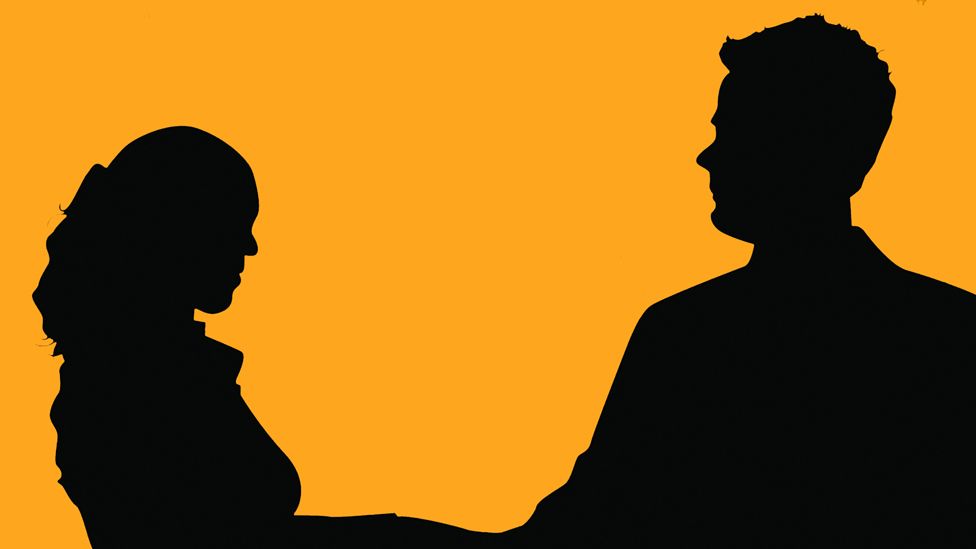Why there's no such thing as gay adultery in UK law
- Published

A woman who was unable to divorce her husband on the grounds of adultery because he had affairs with men wants the law changed.
Anna and her husband were married for 20 years before she discovered he was having 10 different sexual relationships with men. He denied everything, but the pictures and jokes she found on his phone left her in no doubt about what was going on.
When she contacted a lawyer to obtain a divorce, she assumed there would be two grounds open to her - adultery or unreasonable behaviour. Instead, she was surprised to find adultery was not an option.
This was because her husband had sex with other men and not with a woman. In the UK, adultery can only occur between members of the opposite sex and must involve vaginal intercourse.
She opted to divorce him on the grounds of unreasonable behaviour and it made no difference to the financial settlement. But she says she is among a minority of people in her situation who "care hugely about the betrayal and want to know that somebody somewhere has recognised that". She is part of a support group with other spouses in a similar position.
"I am one of the stronger people, and there are many others like me, who are suffering and who continue to suffer as a result of this," she says. "It completely cuts underneath your sense of yourself, your sense of your marriage and you wonder why you were married to this person in the first place, did they ever love you?"
She doesn't think there is any shame in being gay, but believes it's important that people are able to be who they are and not lie to themselves and other people. She feels it's time the law grew up about what sexual intimacy means in the 21st Century.
There are five grounds for a divorce in England and Wales - adultery, unreasonable behaviour, desertion, having lived apart for more than two years (if both partners agree to divorce) or having lived apart for more than five years (if only one wishes to divorce).
This differs in Scotland and Northern Ireland, but in all parts of the UK adultery is defined in the same way and divorce laws stipulate that you must show there are good reasons for ending your marriages.
Case law defines adultery as "voluntary sexual intercourse between a man and a woman who are not married to each other but one or both of whom is or are married," says Jonathan West, head of family and marriage law at Prolegal. "Sexual intercourse must involve penetration of the woman's vagina by the man's penis, however slight."
Same-sex couples can either marry under the the 2013 legislation or opt for a civil partnership. In civil partnerships there is no ground for adultery whatsoever. Adultery can be grounds for divorce in same-sex marriage but the infidelity must involve members of the opposite sex.
Jonathan West thinks we have a discriminatory system. "The courts have gone into the minutia of the process, if they can define it in one way then they can certainly find a mechanism to define it in another way that does fit same-sex couples," he says.
He believes ultimately we will move toward a truly no-fault divorce system. "It is right that in the modern era we have the ability to end marriages in the most civil way possible."
The Peter Tatchell Foundation says that while it feels adultery is an antiquated aspect of the marriage laws, "nevertheless, this differential in the law governing same-sex and opposite-sex married couples is not equality".
However, The Equality Network, a Scottish gay rights group, held focus groups with their members when the Marriage and Civil Partnership (Scotland) Act 2014 was being debated, and they didn't feel the law on adultery needed to change. Unreasonable behaviour was considered to be sufficient.
More from the Magazine
Decades ago when gay people faced ostracism and the threat of prosecution in the UK and other Western nations, many chose to marry and disguise their sexuality. But even with increased tolerance now some choose to take the same path.
Some names have been changed. Straight Partners Anonymous can be contacted at support@straightpartnersanonymous.com
The iPM programme is broadcast on Saturdays at 05.45 and 17.30 BST on BBC Radio 4.